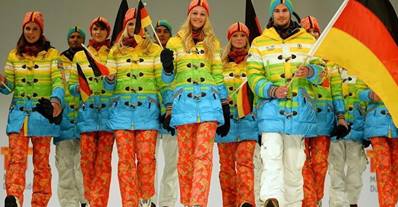
February 11, 2014, by Jules Holroyd
Homophobic bias and the effects of ‘owning’ biases
There are plenty of news stories this week of attempts to combat explicit homophobic discrimination at the Sochi winter Olympic games. Those of us who explicitly reject anti-gay bias might nonetheless be vulnerable to homophobic implicit bias; a number of studies have shown this to be one prominent sort of implicit bias that yields discriminatory judgements and evaluations.
In an interesting recent study, Payne et al (in preparation) looked homophobic biases, finding them to be present in the student populations (in the US) that they studied. The interesting dimension of their study is that they also sought to look at how explicit attitudes and implicit biases might interact. Some of the participants in the studies were encouraged to take ‘ownership’ of the associations, telling them that implicit biases revealed in their tests were indicative of the ‘genuine attitudes’ of individuals, whilst others were encouraged to believe that this was not the case. They found that individuals who took ownership of the homophobic implicit biases went on to adjust their explicit attitudes, such that they were more consistent with their implicit biases.
This raises interesting questions about the relationship between implicit and explicit cognitions: to what extent do our explicit views about our implicit attitudes serve to entrench those implicit cognitions, and shape our explicit attitudes further? How does thinking about these relationships help us to understand the structure of implicit and explicit cognition?
This study is also interesting for us, as it is important to think about the relationship between ownership and responsibility. We want to look at whether the expression of implicit bias is influenced by whether an agent is blamed for such expressions. In blaming, and so holding people responsible, will we be implying that individuals ‘own’ their implicit biases? Is this an effect of the manipulation we should seek to avoid, if possible?
It should also lead us to think carefully about the experimental debrief that we incorporate into our study.

Wait, so those people who took ownership of their implicit attitudes became more explicitly homophobic??
I think I’d want to read the method section carefully to see if taking ownership also conveyed a degree of exculpation
Yes – or if ‘taking ownership’ involved something else (I recall wondering: aren’t there the findings from the cognitive dissonance research to the effect that explicitly stating certain judgements or beliefs (even if they are not ones you hold) can make one more disposed to agree with them/endorse them?).
For our purposes, at least, we’d want to know whether any sort of ‘moral interaction’ – exculpation, affirmation, or some such – seems to be playing a role.
I’ll check the method section.